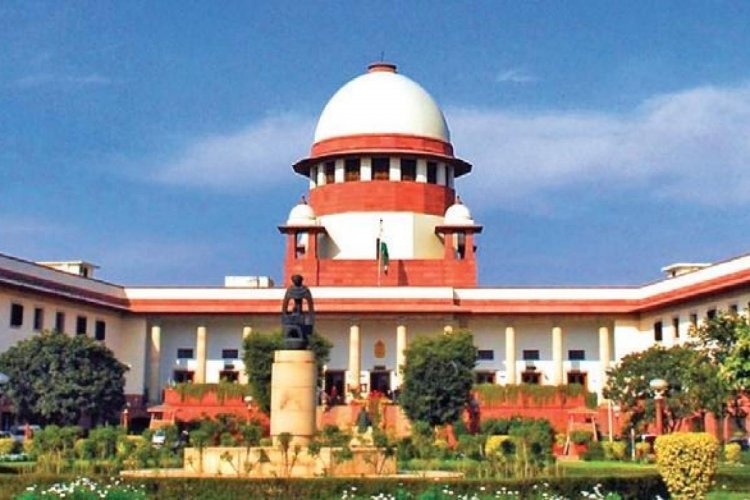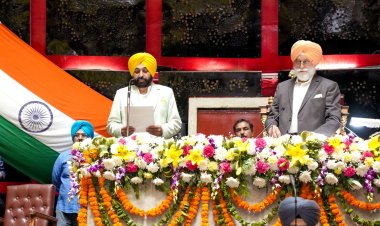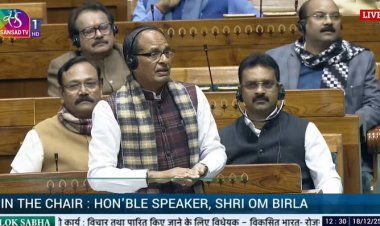97th Amendment and recent SC judgement: Understanding the implications for the new Ministry of Cooperation
The new Ministry of Cooperation can make a difference in the lives of millions of poor in India if it assumes a large developmental role and has a strategic vision.

A new Ministry of Cooperation was formed on 6 July 2021 with the following objectives: (i) Policy in the field of Cooperation and co-ordination of Cooperation activities in all sectors (the Ministries concerned are responsible for cooperatives in their respective fields); (ii) Realization of vision “from cooperation to prosperity”; (iii) Strengthening of the cooperative movement in the country and deepening its reach up to the grassroots; (iv) Promotion of cooperative-based economic development model; (v) Creation of appropriate policy, legal and institutional framework to help cooperatives realise their potential; (vi) Matters relating to the National Cooperative Organizations and the National Cooperative Development Corporation; (vii) Incorporation, regulation and winding up of cooperative societies with objects not confined to one State, including administration of the Multi-State Cooperative Societies Act, 2002 and the cooperative units functioning under its control; and (viii) Training of the personnel of cooperative departments and cooperative institutions.
Many wondered why a new Ministry was deemed necessary when Cooperation was a division handled by a joint secretary in the erstwhile Department of Agriculture & Cooperation. It was not even a full department. Others thought it had something to do with the implementation of the 97th Amendment of the Constitution. But the Supreme Court upheld (though partially) the view of the Gujarat High court holding Part IX B of the constitution as ultra vires. Incidentally, the judgement came on an appeal by the Union of India against an order passed on a public interest litigation (PIL) by an individual. None of the state governments were party to the proceedings.
The 97th Constitution Amendment Act was passed by the Lok Sabha on 27 December 2011 and by the Rajya Sabha the next day. The Presidential assent to the aforesaid Amendment followed on 12 January 2012 and it came into force with effect from February 15 the same year. A division bench of the Gujarat High Court by a judgment dated 22 April 2013 declared that the said Constitutional Amendment inserting IX B was ultra vires for want of the requisite ratification under Article 368(2). This, however, did not impact amendments that have been made in Article 19(1)(c) and in inserting Article 43B.
A look at the provisions
Article 19. Protection of certain rights regarding freedom of speech, etc.— (1) All citizens shall have the right… (c) to form associations or unions or cooperative societies;
Article 43B. Promotion of co-operative societies — The State shall endeavour to promote voluntary formation, autonomous functioning, democratic control and professional management of cooperative societies.
The relevant entries in Schedule VII are as follows. Entry 43 in the Union List (List I) deals with the incorporation, regulation and winding up of trading corporations, including banking, insurance and financial corporations, but not including cooperative societies. Entry 44 deals with the incorporation, regulation and winding up of corporations, whether trading or not, with objects not confined to one State, but not including universities. Entry 32 in the State List (List II) deals with the incorporation, regulation and winding up of corporations, other than those specified in List I, and universities; unincorporated trading, literary, scientific, religious and other societies and associations; cooperative societies.
"Cooperative societies", therefore, is a subject enumerated in Entry 32 of the State List of and most State legislatures have accordingly enacted legislations on cooperative societies. Within the framework of these State Acts, the growth of cooperatives on a large scale was envisaged as part of the efforts for securing social and economic justice and equitable distribution of the fruits of development. But, in spite of the considerable expansion of cooperatives, their performance has not been up to expectations. Considering the need for reforms in the Cooperative Societies Acts of the States, a number of consultations were held with State Cooperative Ministers between 2004 and 2008. A need was expressed by the States for amending the Constitution to keep the cooperatives free from unnecessary outside interferences and to ensure their autonomous organizational set-up and democratic functioning.
Objective of the reform
The objective of the reform was to ensure that cooperative societies function in a democratic, professional, autonomous and economically sound manner. A new article was inserted in the Directive Principles of State Policy for the States to endeavour to promote voluntary formation, autonomous functioning, democratic control and professional management of cooperative societies. Part IX B, inter alia, included (a) provisions for incorporation, regulation and winding up of cooperative societies based on the principles of democratic member control, member-economic participation and autonomous functioning; (b) specifying the maximum number of directors of a cooperative society to be not exceeding 21 members; (c) providing for a fixed term of five years from the date of election in respect of the elected members of the board and its office bearers; (d) providing for a maximum time limit of six months during which a board of directors of a cooperative society could be kept under supersession or suspension; (e) providing for independent professional audit; (f) providing for right of information to the members of the cooperative societies; (g) empowering the State Governments to obtain periodic reports of activities and accounts of cooperative societies; (h) providing for the reservation of one seat for the Scheduled Castes or the Scheduled Tribes and two seats for women on the board of every cooperative society which has individuals as members from such categories; and (i) providing for offences relating to cooperative societies and penalties in respect of such offences.
The court decision
In 2013, the Gujarat High Court decreed that Part IX B was ultra vires. An appeal was preferred by the Government of India in the Supreme Court, the hearing of which concluded only recently and the judgement was pronounced on 20 July 2021. It will be prudent to look at the 'seven cooperative principles' as guidelines by which the cooperatives put their values into practice.
1st Principle: Voluntary and Open Membership: Cooperatives are voluntary organizations open to all persons able to use their services and willing to accept the responsibilities of membership, without gender, social, racial, political or religious discrimination.
2nd Principle: Democratic Member Control: Cooperatives are democratic organizations controlled by their members, who actively participate in setting their policies and making decisions.
3rd Principle: Member Economic Participation: Members contribute equitably to, and democratically control, the capital of their cooperatives. A major part of that capital is usually the common property of the cooperative, unlike private company practices.
4th Principle: Autonomy and Independence: Cooperatives are autonomous, self-help organizations controlled by their members.
5th Principle: Education, Training and Information: Cooperatives provide education and training for their members, elected representatives, managers, and employees so they can contribute effectively to the development of their co-operatives.
6th Principle: Cooperation among Cooperatives: Cooperatives serve their members most effectively and strengthen the cooperative movement by working together through local, national, regional and international structures.
7th Principle: Concern for Community: Cooperatives work for the sustainable development of their communities through policies approved by their members.
The Supreme Court found certain provisions of Part IX B as constitutionally infirm qua cooperative societies operating within a State; it would yet operate qua multi-State cooperative societies and in Union Territories. The Court upheld the judgment of the High Court except to the extent that it strikes down the entirety of Part IX B of the Constitution of India. It declared that Part IX B of the Constitution of India is operative only insofar as it concerns multi-State cooperative societies both within the various States and in the Union Territories of India.
An important point to note here is that the case was decided on the basis of the constitutional principles of ‘who has the right to legislate’. Non-adherence to the procedure prescribed under Article 368(2) seems to have been the major issue on which this case rested. That is to say that there has been no discussion on the merits.
Another point to note here is that 17 states have already amended their cooperative laws in accordance with the provisions of Part IX B.
A major change in the cooperative banking system came about with the Banking Regulation Act amendments in 2020, by which effective control over cooperative banks was shifted to the Reserve Bank of India (RBI). Though the amendment exempts primary agricultural credit societies (PACS), the three-tier structure of state cooperative bank, district cooperative banks and PACs has been disturbed. Kerala created a new Kerala Bank replacing the State Cooperative Bank to tide over some of these issues. It is another matter that the cooperative credit system takes care of less than 10 per cent of the short-term agricultural credit in the country, but states with a strong cooperative structure are concerned.
The Supreme Court has held that forming cooperatives is a fundamental right, and cooperatives remain as part of the directive principles. Part IX B, which contains articles 243 ZH to ZT, shall now apply only to multi-state cooperatives and Union Territories. 243 ZI and ZT were specifically seen to be encroaching on the rights of the state legislatures, and hence the decision.
The new Ministry of Cooperation has its task cut out now. It can (1) go for a constitutional amendment to conform to the Supreme Court judgement, removing all references to the state government; or (2) proceed under Article 368(2) to validate the existing Part IX B; or (3) proceed under Article 368(2) to make cooperation a concurrent subject under List III. The third option may face opposition from a few states. The first option is the easy one. The second option may not be difficult since none of the states had gone against the Constitutional Amendment. If the states are allowed to continue doing what they are doing the following may not happen: limitation on the number of directors, right to information, democratic governance, professional management, and accountability.
What should the new ministry do?
It can take the “control” route of amending the Constitution by shifting the item ‘cooperative societies’ to the Concurrent List and take control.
Alternatively, it can take a developmental view and bring about a socio-economic revolution in rural India by enabling cooperatives to function on the basis of the four core principles enumerated in Article 43B. The success of self-help groups (SHGs) and the livelihood missions should encourage the ministry. Reviving the village-level cooperatives to become large multitasking SHGs and federating them to capture value for its members (a la AMUL) has to be the priority.
This needs a concerted effort to (i) Organise new cooperatives (labourers, farmers, women, artisans etc) and develop business models to capture market value. The old logic of perpetual subsidies will not work. (ii) Support these initially with capital, organizational and managerial assistance; (iii) Professionalize their management, de-bureaucratize the existing ones; and (iv) make all grants and concessional finance conditional to the observance of the four basic principles of voluntary formation, democratic governance, autonomous functioning, and professional management.
The new Ministry of Cooperation can make a difference in the lives of millions of poor in India if it assumes a large developmental role and has a strategic vision.
(T Nanda Kumar is former Secretary, Department of Agriculture & Cooperation and former Chairman, NDDB. The views expressed here are personal.)



 Join the RuralVoice whatsapp group
Join the RuralVoice whatsapp group









































